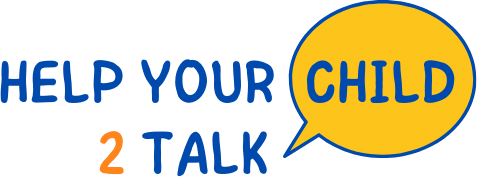Understanding your child’s speech and language development is of paramount importance. Delays or disorders can influence not only communication but also academic achievements, behavior, and social connections. A speech and language evaluation is a thorough analysis that offers insights into your child’s speech, language, and communicative strengths and areas of possible need. This article will describe what you can expect during your child’s speech-language evaluation. Variations in this process may be influenced by where the evaluation is taking place such as your home, a school, clinic, hospital, or office.
Understanding the Evaluation’s Significance
First, it’s essential to understand the importance of this evaluation. It functions as identification of a baseline for your child’s current development and a detailed blueprint for intervention. Often, the earlier the identification and intervention, the better the outcomes. But there is potential for speech, language, and communication improvement across the lifespan.
The Referral Process
Prior to the assessment, a child is referred to the speech-language pathologist or identified from a speech-language screening. Potential referral sources include:
- Observant pediatricians noting developmental variations.
- Teachers witnessing classroom-related challenges.
- Concerned parents noting disparities in speech or language milestones.
Preparing for the Evaluation

How Parents Can Prepare
- Gather Information: Collect and offer for review all relevant medical records, reports, and any prior evaluations.
- List Concerns: Be clear on your specific concerns, like certain sounds your child struggles with or difficulties in following instructions, answering questions or expressing needs, wants, feelings, and ideas. Concerns could also include those related to fluency, voice, hearing, social language, and/or feeding development.
- Stay Relaxed: Your calm demeanor will reassure your child and set a positive tone for the evaluation.
Preparing Your Child
- Open Conversation: Discuss the evaluation in child-friendly terms. You might say, “We’re going to visit someone who’ll play talking games with you.”
- Stay Positive: Emphasize the fun aspect and avoid creating any sense of pressure or expectations.
- Routine: Ensure your child is well-rested and has had a meal before the evaluation to help them be more comfortable and cooperative.
The Evaluation Process
The Initial Interview
The evaluation often starts with a thorough parent interview. The speech-language pathologist will ask you questions that often include:
- Your concerns
- Prenatal and birth history
- Hearing and vision status
- Other health and medical background
- Developmental milestones history
- How your child currently responds to and uses language
- Family history of speech and language or related issues
- Education history

Observations and Standardized Testing
Interaction between the child and the speech-language pathologist (SLP) often covers:
- Articulation
- Receptive and expressive language
- Pragmatic language
- Voice
- Fluency
- Oral motor skills
- Play patterns
- Feeding skills (if indicated)
Components of the Evaluation for Child:
- Observation: The therapist observes your child. They’re looking for how your child interacts with the people and objects within their environment, and how they respond to and use speech, language, and communication during play and interaction.
- Interview: If appropriate, your child may be interviewed to determine any concerns they may have about their speech, language, and communication.
- Play-Based Assessment (common for younger children): Through play, the speech-language pathologist can understand how your child relates to people, toys, and objects. They can watch your child play and gain insight into their understanding of language, use of language, communication, and problem-solving skills. The speech-language pathologist can observe, record, and analyze your child’s speech sound production, voice, and fluency.
- Standardized Assessments: These are formal tests that compare your child’s responses to tasks and questions to a large group of other children their age. It gives a structured framework to understand where your child has strengths and where they may be facing challenges.
- Non-Standardized Assessments: These are informal tests that allow for more flexibility. They might include tasks like story retelling or having a conversation. These can be tailored to your child’s unique needs and give a real-world understanding of their speech, language, and communication skills.
Detailed Written Evaluation Report
Once the evaluation concludes, the SLP drafts a comprehensive report detailing:
- Child’s medical, hearing and vision, social, educational history and other background information that you shared
- Evaluation process and areas addressed
- Noted findings and observations
- Comparisons of your child’s strengths and areas of need to typical developmental benchmarks
- Recommendations for other professional evaluations
- Indication of need and/or eligibility for speech-language therapy intervention
This report becomes a valuable tool for identifying your child’s speech, language, and communication strengths and areas of need and designing their individualized treatment plan (if indicated).
Recommendations and Referrals
Following the evaluation, the SLP may suggest:
- Direct speech and language therapy
- Follow-up after a designated time period
- No current need for speech-language therapy services
- Referrals to other professionals, such as audiologists, occupational or physical therapists, or pediatric neurologists, especially if broader developmental concerns are identified.
Creating a Treatment Plan
If service is recommended, an individualized treatment plan is designed. This includes:
- Specific goals for your child
- Possible strategies
- Suggested frequency and nature of therapy
- Goals and strategies to reinforce at home
Funding and Insurance for Therapy
The costs of speech-language evaluations and therapy can vary. Therefore, it’s vital to:
- Check insurance policies for coverage specifics regarding private evaluations and therapy sessions.
- Research local or national organizations offering financial assistance.
- Explore Early Intervention and school-based services which will be available for qualifying students.
FAQs
- How long does the evaluation take?
Depending on the child’s age, their development, and the areas being evaluated, the evaluation usually lasts 1-2 hours. - Will my child be stressed during this assessment?
Evaluations are often playful and engaging, ensuring the child remains relaxed and comfortable. - Will we get the results right away?
The speech-language pathologist will share a summary of their findings after the evaluation is complete. They will complete a detailed written report and recommendations shortly after the evaluation and forward it to you and/or review it with you in person at a follow-up meeting.
Resources for Further Reading
- How Do I Prepare for My Speech-Language Pathology Visit (asha.org)
- Assessment and Evaluation of Speech-Language Disorders in Schools (asha.org)
- Your Child’s First SLP Evaluation: What to Expect | WonderBaby.org
- 5 Things to Expect During a Speech Evaluation (chsc.org)
- How to Prepare for an Upcoming Speech-Language Evaluation (chsc.org)
Summary/Conclusion
Navigating your child’s speech and language development journey can seem overwhelming at times but understanding the evaluation process plays a crucial role in reducing stress and ensuring optimal outcomes. When parents are well-informed, prepared, and involved in the speech-language evaluation process, they can set the stage for their child’s speech, language, and communication progress.




0 Comments